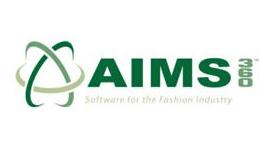AIMS 360, the fashion industries leading apparel ERP Software Company, is promoting the Fall season with green awareness. "There is all sorts of talk about in the "Cloud" from software, computer, telecommunications and other technology providers, but many apparel businesses are not aware nor correlate hosted software as a positive impact on the environment." says Chris Walia (Director of Marketing at AIMS360).

AIMS has been creating awareness initiatives for their clients for many years and continues to help them understand the value of in the "Cloud" based hosting. AIMS in the "Cloud" solutions reduce the need of large amounts of technology components, usage of energy, and waste in landfills. All of this leading to a cleaner environment and increasing ROI. AIMS is committed to contributing to a cleaner and brighter environment for today and our future.
"Going Green" is one topic that has become of much importance in almost any industry you can think of. With making low cost fixes to be a part of the green movement, many companies have seen profits rise.
But this change to "green" has not been easy for the fashion industry. Sure, many garments are being produced with 100% organic cotton and other environmentally friendly materials, but this is just one part of what can be done.
Manufacturing of textiles is one of the biggest pollutant industries globally due to antiquated clothing manufacturing systems for processes such as dyes and finishes as well as growing cotton and producing synthetic fibers. Each year, tons of wasted materials get rejected from mills because of incorrect dye colors which then need to be destroyed by incineration and eventually leads to toxins in the air. Many water sources near manufacturing mills are polluted and turn into various colors depending on which season that mill is producing due to toxic dyes that are washed off during the cleaning process.
All of these sounds morbid but, apparel businesses can conduct research and really understand the entire processes of making the fabric to the end product. Companies should put into place a criteria list which evaluates environmental performance of suppliers. After appraising all suppliers, the one that is most eco-friendly will be the one that receives the contract. What dictates profitability for mills is the number of production orders they receive, so if you, the brand, assesses the mills environmental practices and standards and see that they are not up to par, then that particular mill will probably see less business and hence will be less profitable.
Source:
http://www.fibre2fashion.com/news/textile-news/newsdetails.aspx?news_id=116705





